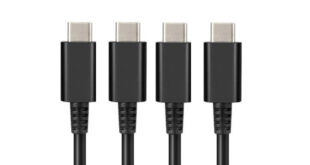Japan’s mobile games market has undergone a significant metamorphosis in the last few years, led by companies such as DeNA and Gree.
Those companies have pioneered the concept of mobile social network gaming (MSNG); a fusion of Facebook games’ community functionality and viral gameplay and distribution mechanisms with mobile’s portability and ubiquity.
Gaming on these services comprises avatar customisation and mini-games infused with the sort of social virality found in games like FarmVille.
MOBILISING JAPAN
Also like FarmVille, their revenue model is microtransaction-based and the market leaders are each generating hundreds of millions of dollars in high margin revenue per annum, but from relatively small userbases – well under 20 million. So why has such an attractive business model not been replicated in our mobile games market where all good ideas are pilfered widely and with impunity?
The simple answer is that it is being replicated within the youthful smartphone gaming market but is being held back by a number of factors.
The first is, perhaps surprisingly, Apple. To all intents and purposes (i.e. revenues) smartphone gaming really equals iPhone gaming at the moment. Unfortunately, Apple’s prohibition of premium virtual currencies – a crucial component of the microtransaction business model – has prevented the development of the sort of MSNG revenue model employed so effectively in Japan. It is a baffling strategic move by Apple that only makes sense if the firm is planning to introduce its own mandatory premium virtual currency system.
Given that Apple is to launch a basic MSNG service (Game Center) later this year, this is, in my view, a distinct longer-term possibility. This has not stopped the larger iPhone publishers such as Gameloft and ngmoco launching their own closed-platform MSNG services, which will complement Game Center, whilst a raft of open-platform MSNG services from independents led by OpenFeint and Scoreloop have brought the concept to the indie developer masses.
Geo-location based leaderboards, Facebook integration, friends lists, challenges, notifications, avatars and achievements are the staple of these services, but true microtransaction support remains conspicuous for its absence in most of their feature-lists.
Western developers must therefore turn to other platforms for the potential to implement a fully-featured MSNG service, and therein lies the second barrier: although shipments of non-iPhone handsets dwarf that of iPhone, users of these platforms are not spending anything like as much money on games as iPhone users.
Large installed bases are useless without an OS/app store ecosystem and user experience that is conducive to gaming.
Game discovery, recommendations, download and installation and, most importantly, payment are all problem areas of varying severity for other platforms. Android (v.2 and later) arguably gets closest to emulating Apple’s impressive precedent but it still has a way to go with making payment ubiquitous and low friction.
Despite this, we fully expect smartphone gaming’s future to be multi-platform and believe that the gradual improvements to the user experience being implemented by the other platform owners will attract both developers and paying users. Gaming is already starting to feature more strongly in other platforms’ app stores from Android, Symbian/Ovi and Windows Mobile to Palm and even Blackberry, and non-iPhone games revenues are growing rapidly.
THE KEYS, THE SECRET
We see these alternative platforms as playing a key role in the development of a Western MSNG market. The first major entrant into the Android MSNG market, Scoreloop, is already attracting 300,000 new registered players per week. Support for Android and other platforms will grow, and we expect MSNG services to attempt to grow their social networks aggressively to reach the sort of scale which creates a barrier to exit for users.
There is also a good chance that this will, itself, create another hindrance to the MSNG market’s growth: fragmentation. Without a single dominant network – as Facebook has provided for web-based social network gaming – a sea of incompatible MSNG silos will simply frustrate players having to replicate friends lists multiple times for multiple games.
The final barrier to the MSNG market taking off in the West is developer resistance to the implementation of freemium and microtransaction models. We believe that this inertia is widespread amongst smartphone developers already wedded to the ‘traditional’ retail model despite its manifold shortcomings, the unequivocal success of microtransactions in other games markets and the early success of the first fully featured MSNG games such as ngmoco’s We Rule.
We Rule used a light-weight variant of microtransactions and still topped the paid charts, represented half of all ngmoco’s daily usage and created havoc for ngmoco’s servers due to its popularity.
On Facebook, few games are launched which don’t incorporate social features; the commercial dynamics are just too compelling. For similar reasons, we believe that the current trickle of Western MSNG titles will rise with increasing speed over the next couple of years as MSNG services’ social features become must-have for all major new releases to tap into their growing user bases and also to take full advantage of the microtransaction model.
Nick Gibson is a director at Games Investor Consulting, providing research, strategy consulting and corporate finance services to the games, media and finance industries.
www.gamesinvestor.com

 MCV/DEVELOP News, events, research and jobs from the games industry
MCV/DEVELOP News, events, research and jobs from the games industry



